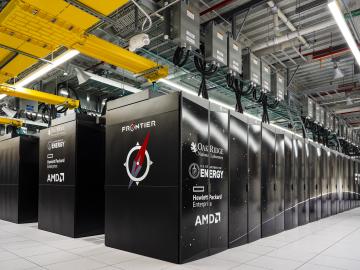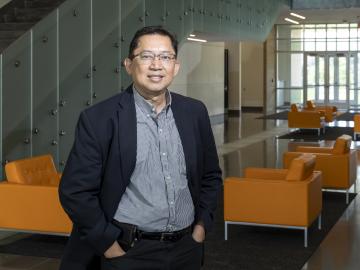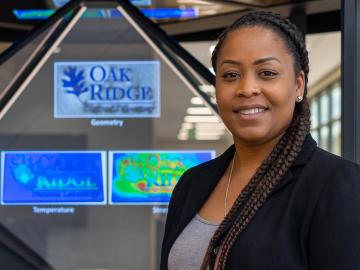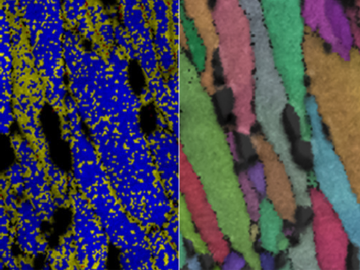Filter News
Area of Research
News Topics
- (-) 3-D Printing/Advanced Manufacturing (4)
- (-) Artificial Intelligence (1)
- Advanced Reactors (1)
- Bioenergy (1)
- Biomedical (1)
- Buildings (3)
- Chemical Sciences (16)
- Climate Change (3)
- Composites (2)
- Computer Science (2)
- Coronavirus (1)
- Critical Materials (4)
- Decarbonization (4)
- Energy Storage (5)
- Environment (3)
- Fusion (2)
- Grid (2)
- Irradiation (1)
- Isotopes (3)
- Materials (40)
- Materials Science (7)
- Microscopy (3)
- Molten Salt (1)
- Nanotechnology (3)
- Net Zero (1)
- Neutron Science (8)
- Nuclear Energy (4)
- Partnerships (6)
- Physics (9)
- Polymers (4)
- Quantum Computing (2)
- Quantum Science (1)
- Renewable Energy (1)
- Sustainable Energy (1)
- Transportation (2)
Media Contacts

ORNL is home to the world's fastest exascale supercomputer, Frontier, which was built in part to facilitate energy-efficient and scalable AI-based algorithms and simulations.

Scientist-inventors from ORNL will present seven new technologies during the Technology Innovation Showcase on Friday, July 14, from 8 a.m.–4 p.m. at the Joint Institute for Computational Sciences on ORNL’s campus.

Rigoberto Advincula, a renowned scientist at ORNL and professor of Chemical and Biomolecular Engineering at the University of Tennessee, has won the Netzsch North American Thermal Analysis Society Fellows Award for 2023.

Merlin Theodore is one of eight new board members announced by President Biden; she will join the 25-member board for a six-year term.

ORNL researchers have identified a mechanism in a 3D-printed alloy – termed “load shuffling” — that could enable the design of better-performing lightweight materials for vehicles.




